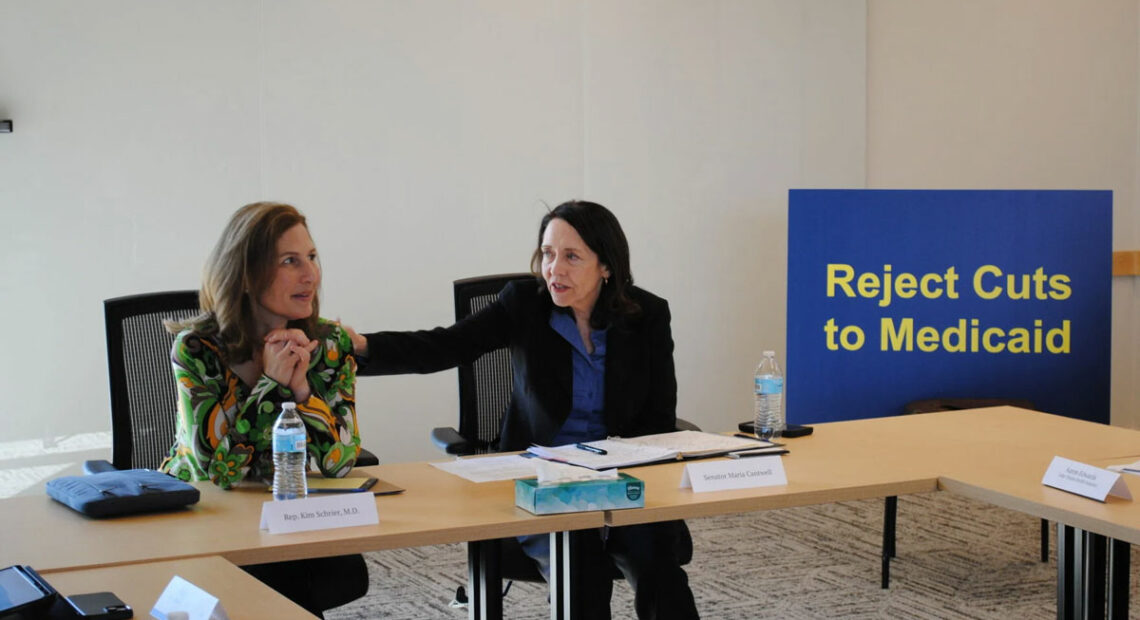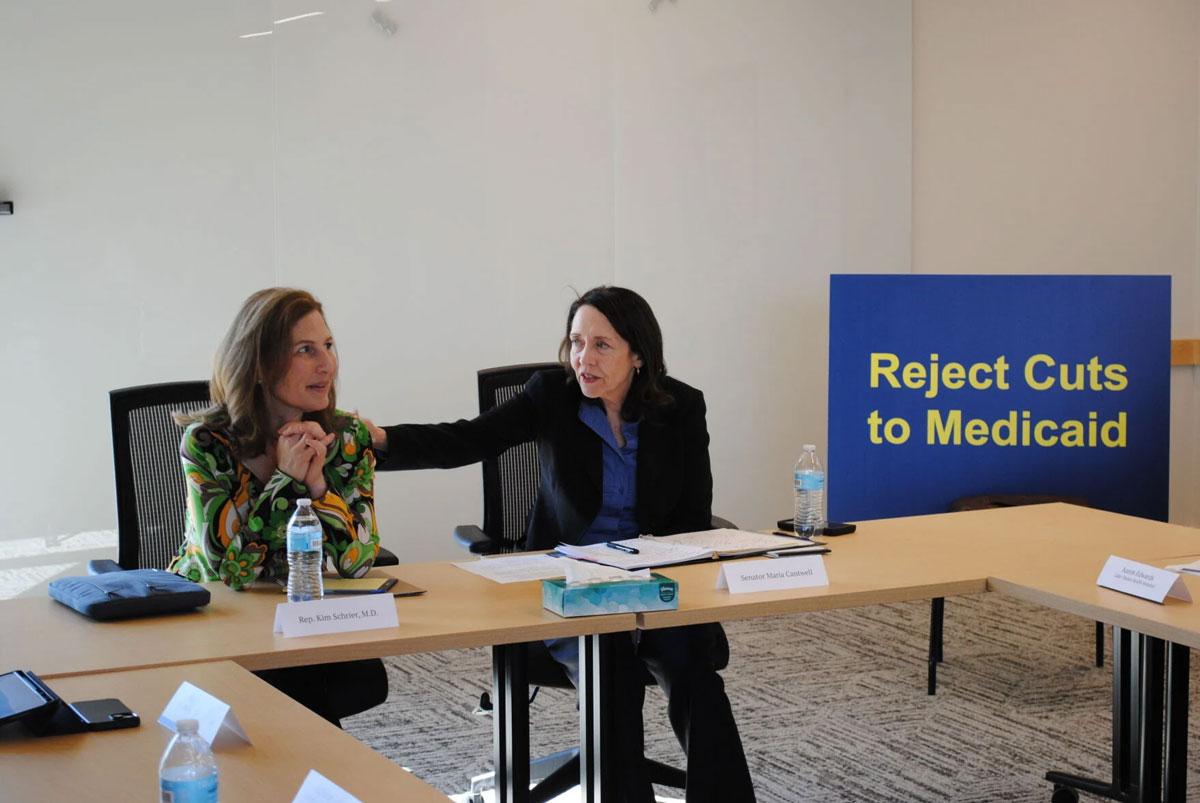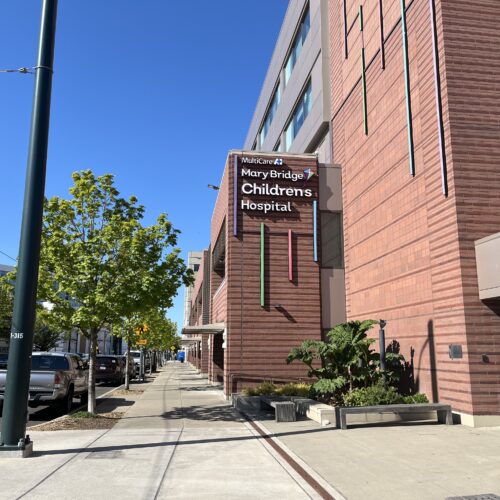
Cantwell, Schrier talk possible Medicaid cuts with local health care stakeholders
Listen
(Runtime 1:07)
Read
U.S. Sen. Maria Cantwell and Rep. Kim Schrier met with hospital executives, doctors and community health stakeholders from across North Central Washington on Thursday to discuss the impact of potential cuts to Medicaid.
Health care workers at the meeting said Medicaid cuts could immobilize rural health care — and the communities that rely on it.
“Sixty-six percent of our services are funded by Medicaid,” said Aaron Edwards, the CEO of Lake Chelan Health. “We’re extremely vulnerable. Our operative margin is negative 2%. If it weren’t for local tax revenue, we wouldn’t break even. Cuts to Medicaid would have profound effects.”
House Republicans, including U.S. Rep. Dan Newhouse, voted in favor of a resolution directing the House Committee on Energy and Commerce to reduce the federal deficit by at least $880 billion.
Medicaid is not explicitly mentioned in the resolution. However, both Cantwell and Schrier said this resolution would impact government-funded health care programs like Medicaid. They said the move could lead to service reductions and potential hospital closures.
“You cut Medicaid, and it creates a spiral,” Cantwell said. “First, it affects the programs. Then it affects the hospital, then it affects the workforce. Then you end up with shortages. Then you end up with deserts. Then you end up with, ‘Who wants to have a business there?’ It just keeps cascading.”
Medicaid in Washington state, known as Apple Health, provides free or low-cost health coverage to low-income individuals and families. The program is funded by the federal and state government, and is managed by the Washington State Health Care Authority.
Nearly 2 million Washington residents use Apple Health, according to the Washington Health Benefit Exchange. About 850,000 of those people are children.
Cuts to Medicaid could impact the services hospitals are able to provide. For instance, Lake Chelan Health has one of the last remaining small hospitals in the region that provides maternity care. If Medicaid funding was cut, Edwards said maternity services could be the first to go. It’s a concern echoed by Schrier, who has a background as a pediatrician.
“When Medicaid is cut, labor and delivery services are the first to go,” Schrier said. “I am so worried about what that means for this community and rural health.”
Dr. Matthew Hillman, the chief medical officer at Lake Chelan Health, said the loss would be felt by more than just Medicaid patients.
‘If you cut Medicaid funding to a rural hospital, the losers are the entire community,” Hillman said. “It’s not just the recipients of Medicaid — it will be everybody in that community that is affected. Especially if that hospital closes its doors.”
Niekol Hall, a hospitalist with Confluence Health, said about 30% of their patients rely on Medicaid. If that support goes away, she warned, the system could buckle.
“They are going to show up to our ERs much sicker, with more advanced disease,” she said. “Our ability to treat and discharge patients will be severely impacted.”
Reneé Diaz may be contacted at renee.diaz@wenatcheeworld.com. Collaborative reporting by The Wenatchee World, NWPB and WSU’s Murrow College of Communication Newsroom Fellowship.
















